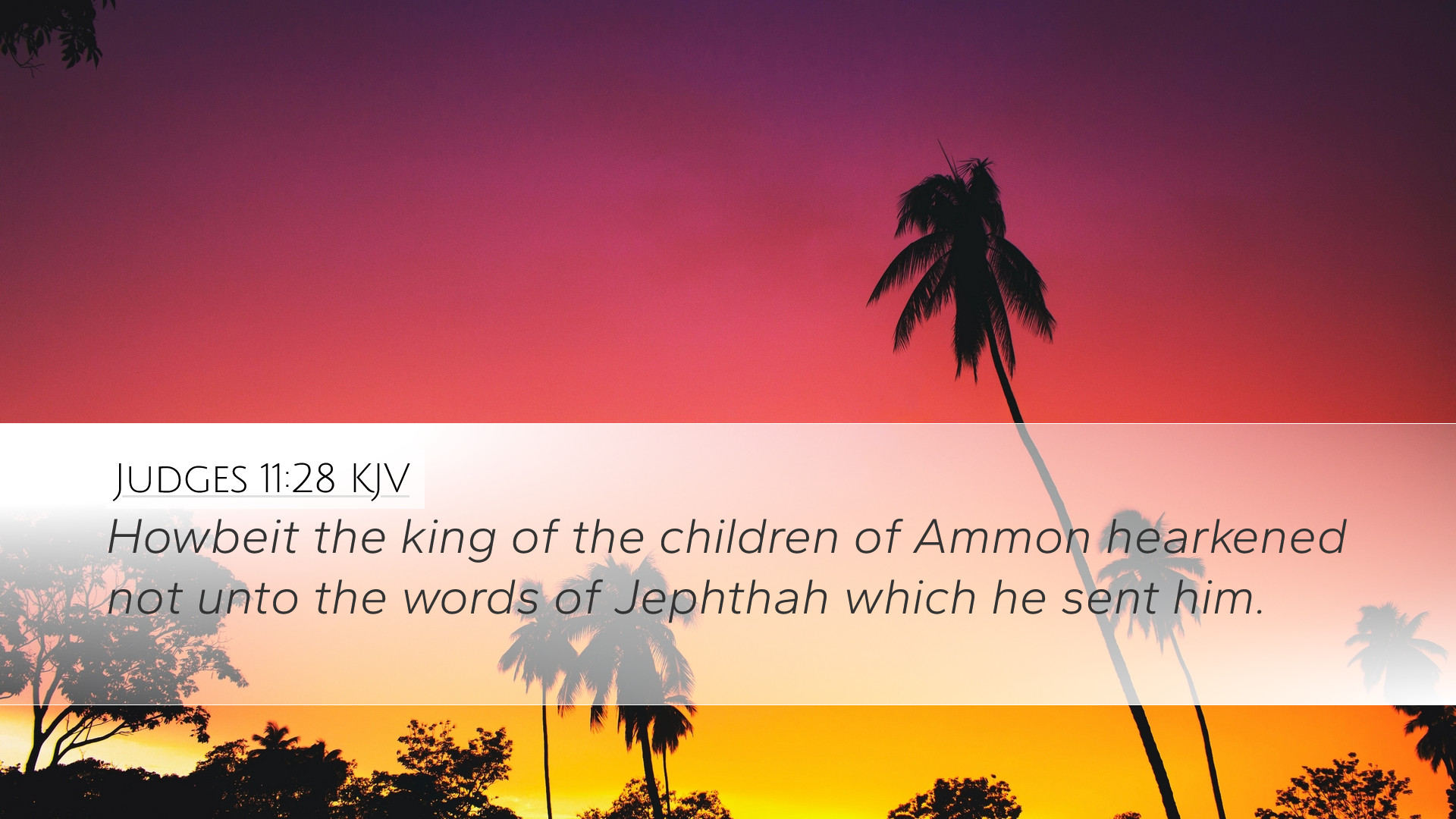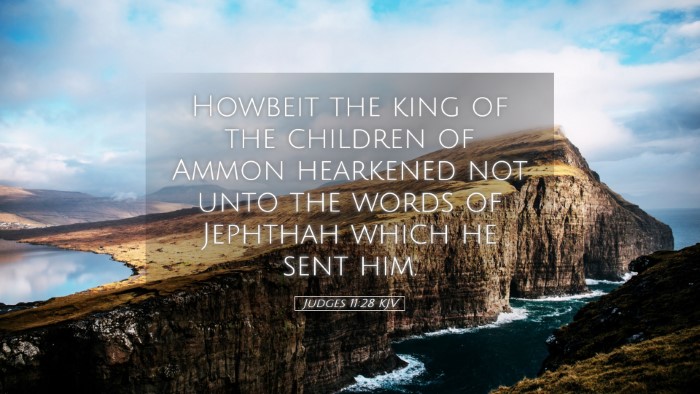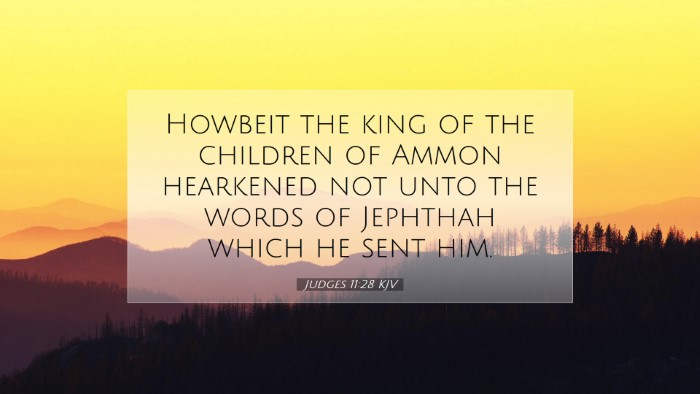Commentary on Judges 11:28
Introduction: Judges 11:28 reads: "But the king of the Ammonites paid no attention to the message Jephthah sent him." This verse encapsulates a moment of significant tension in the narrative of Jephthah, reflecting issues of communication, conflict, and God’s sovereignty. This commentary aims to distill insights from various public domain sources to illuminate the depth of this biblical account.
Contextual Overview
In the broader context of the Book of Judges, we see cycles of Israel's disobedience, oppression by foreign powers, and subsequent deliverance by judges. Jephthah’s story is replete with complexities, as he is portrayed as a valiant warrior yet a man marked by personal and family conflict. Understanding this context is vital for interpreting Judges 11:28.
Exegesis of Judges 11:28
1. The Role of the Ammonite King: The indifference of the Ammonite king represents the hardened heart often described in biblical narratives. As noted by Matthew Henry, the refusal to heed Jephthah’s message illustrates a lack of respect for the God of Israel and highlights the man’s pride. The Ammonites, having occupied Israelite territory, were not merely adversaries but also individuals who had disregarded the divine providence surrounding Israel.
2. Jephthah's Communication: Jephthah's appeal was rooted in historical claims to the land which the Ammonites had taken. According to Albert Barnes, this request was reasonable and justifiable, reflecting the lawful proceedings expected in diplomatic relations. By sending the message, Jephthah exemplifies the role of a leader who seeks to resolve conflict through dialogue before resorting to war.
3. Spiritual Dimension: Jephthah’s encounter is also spiritual. The stubbornness of the Ammonite king can be viewed as a manifestation of the conflict between light and darkness—an ongoing theme in scripture. Adam Clarke emphasizes the importance of acknowledging God's hand in the affairs of men. Jephthah's attempts at diplomacy could be seen as part of God's larger plan for Israel's deliverance.
Thematic Analysis
- Divine Sovereignty: This verse illustrates the larger theological theme of divine sovereignty; despite efforts toward peace, God’s plans will ultimately prevail. Jephthah's mission reflects the tension between human action and divine orchestration.
- Human Pride: The king's disregard for Jephthah's warning reveals the human tendency toward arrogance. Pride often blinds individuals to counsel and guidance, which can lead to disastrous consequences.
- The Nature of Leadership: Jephthah’s initial attempt at peace highlights the essential qualities leaders ought to embody—wisdom, patience, and a desire for reconciliation, instead of immediate conflict.
Application for Today’s Believers
1. Importance of Dialogue: Just as Jephthah sought communication before conflict, modern believers are encouraged to pursue dialogue in their disputes rather than hasty actions. This principle is vital in personal, community, and church relationships.
2. Acknowledgment of God’s Sovereignty: Believers today must recognize that even when situations seem bleak or adversarial, God remains sovereign. Trusting in His timing and approach is a critical aspect of faith that can provide peace in turmoil.
3. Lessons from Rejection: The rejection faced by Jephthah offers comfort to believers; they may also experience misunderstanding or dismissal in their lives. However, such experiences can lead to growth and deeper reliance on God's purpose.
Conclusion
Judges 11:28 offers rich insights into the complex interplay of human actions and divine will. The response of the Ammonite king acts as a poignant reminder of the challenges faced by leaders, the necessity of proper communication, and the overarching, sovereign hand of God in ensuring the fulfillment of His plans. In reflecting on this verse, pastors, students, and theologians are invited to delve deeper into the rich tapestry of God's Word and its relevance in today’s context.


